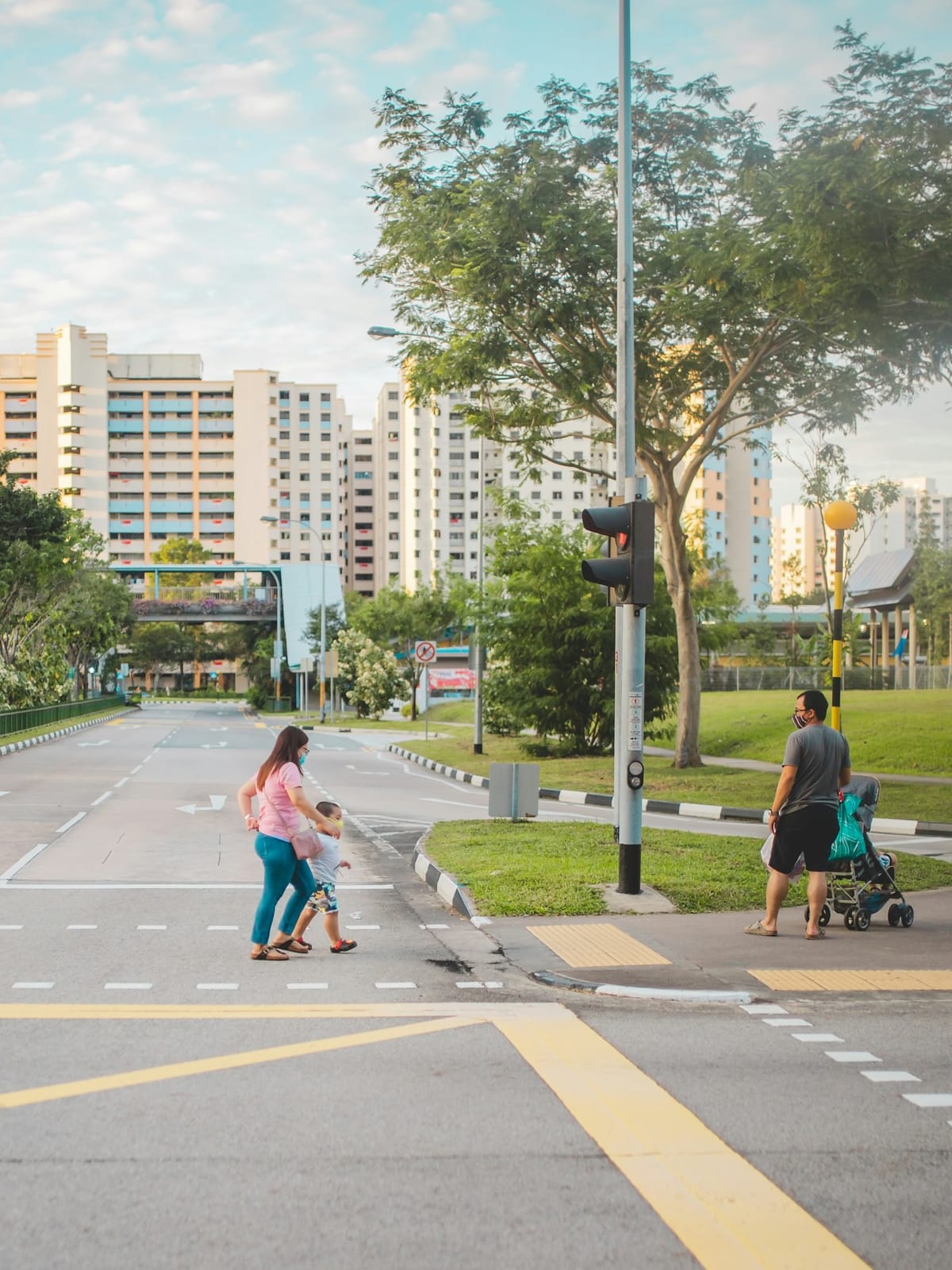2025 General Election Edition
Where is my sheltered walkway?

I came across this ST article headlined "Elections explained for kids" and I thought hey that's neat! It started promisingly,
With Polling Day on May 3, it is a good opportunity for parents to discuss the general election with their children and explain its impact on Singapore.
But oh boy, did the next section immediately disappoint me. Actually, what was I expecting from Singapore's mainstream media, huh?
It harped solely on the processes – what happens and how these happen in an election. There is no explanation of what, of why, of who, no heart, no soul; just a mechanical whirring of the "democratic process". Whatever meagre passing mention of otherwise are relegated to the FAQ section.
What?
This is the first question we need to ask ourselves: What is the election for? You are not choosing the Prime Minister. You are not choosing "the government" (at least not directly). That's now how it works in Singapore's model of governance. Don't get me started on how the PM's face is hung everywhere even in constituencies he is not contesting at, and how mainstream media highlighted the PM's face, even though he has not been re-elected.
In fact, you are choosing the Member (or Members) of Parliaments (MPs) to represent you and your constituency in Parliament. Essentially, they are law-makers; they propose, debate, and pass laws. And to do this well, they need to engage their constituents (citizens like you and me), scrutinise and develop policies, monitor government ministries and agencies, track budgets, etc. Keep this in mind for now.
After the election, the party with the majority of elected MPs forms "the Government", while the rest of the MPs constitute "the Opposition" in Parliament. Nevertheless, the entire Parliament – including both "Government" and "Opposition" MPs – collectively forms the legislative branch of government. The leader of the majority party is typically selected to be the Prime Minister (PM) by the President, who appoints the PM as the "MP most likely to command the confidence of Parliament". The Prime Minister then forms the Cabinet, the executive branch of government, by appointing Ministers (usually from among the MPs) to head the various government ministries
Unfortunately for us, this nomenclature has led some (or perhaps, too many) to believe that "voting for an opposition party means you are an opponent of the government and therefore not a supporter of Singapore". And conversely, "being patriotic means voting for the ruling party". Please, let us educate ourselves on these terminologies and what they actually mean. And most importantly, what you are electing.
Who?
Not who you are voting for – but who is it for?
Yes, everyone will think of their own benefits. What voucher you can get, what schools you will get, what jobs you will get, what house you will get. It doesn't affect me, why should I care? Sounds familiar?
More people should realise it's also for your family – your ageing parents, your growing children. For you, your family, and your children; not wrong.
Although it goes beyond that.
It is also for your neighbours and the society and the country. It is for the common good. And especially for those who cannot speak up for themselves (read: cannot vote in the elections even when the policies eventually affect them). You have this right, and therefore this responsibility.
You are part of this society and country. If the boat sinks, you sink. If the boat floats, you float. It affects you, even if you might think otherwise.
Why?
Now that we have looked at what and who, let's take a step back. Why do we vote for a certain candidate or party? No, it's not so that you can get your covered walkway or new hawker centres or new parks connectors or better road connectivity.
I feel Singapore is too small and homogeneous for that. Maybe these local politics and nuances matter more in larger geographical areas, where the Westminster model of government was developed.
Rather, it should be grounded on vision, values, and principles (oxymoronic yes, I know). What kind of values do we want to uphold, what principles? What vision do we have for Singapore? And therefore which candidate or party can best represent you and speak out for these in Parliament?
"Regardless of race, language, or religion" is a principle. "Build covered walkway in your estate" is not.
To give another example, in terms of economic pie and distribution, in principle, do you want the total sum to be larger with a wider gap, or a narrower gap with a smaller the total sum? From this principle and value, the policies and implementation follow.
I know things are usually not as dichotomous or black and white, with potentially infinite shades of intermediate answers. Which is precisely why we need these principles and values to act as a guiding North Star.
How?
How about the how? Don't be bogged down by the implementation at this point – like how is this and that proposal going to be funded? Singapore public service is quite good at execution and policy implementation. And I'm sure these diligent and hardworking public servants can also provide feedback on the feasibility and whether a policy is realistic or not. Wait, civil service not government meh? If you haven't realised this by now, please, I implore you, get these things right.
Of course, the end does not justify the means. Yes, implementation and execution matters too. This is yet another opportunity; as an active electorate, we should think more deeply about these issues and critically review what has been presented before us.
Nonetheless, the election is for us as citizens to decide what we, collectively, deem to be of value, deserving the appropriate resources and priorities. Not so much debating how the vision can be achieved – that's precisely the MPs' job once they have been elected.
Now what?
In any investment prospectus, we always see something along this line: past performance is not an indicator of future performance.
Same for this election. Yes, past performance gives credence, but it is a forward-looking event after all. What do you want for the future? Who matters to you when the future comes? Not just the next 5 years, but the next 10, next 20, next 50.
What really matters to you? Why?
I hope this cooling-off day, we can ponder these matters thoughtfully, and cast our vote with wisdom and discernment.
Hope you have enjoyed this article! Support Pondering Potato by using the referral links in the posts, sharing on Telegram, subscribing, or donating. Also explain the election to children better.




